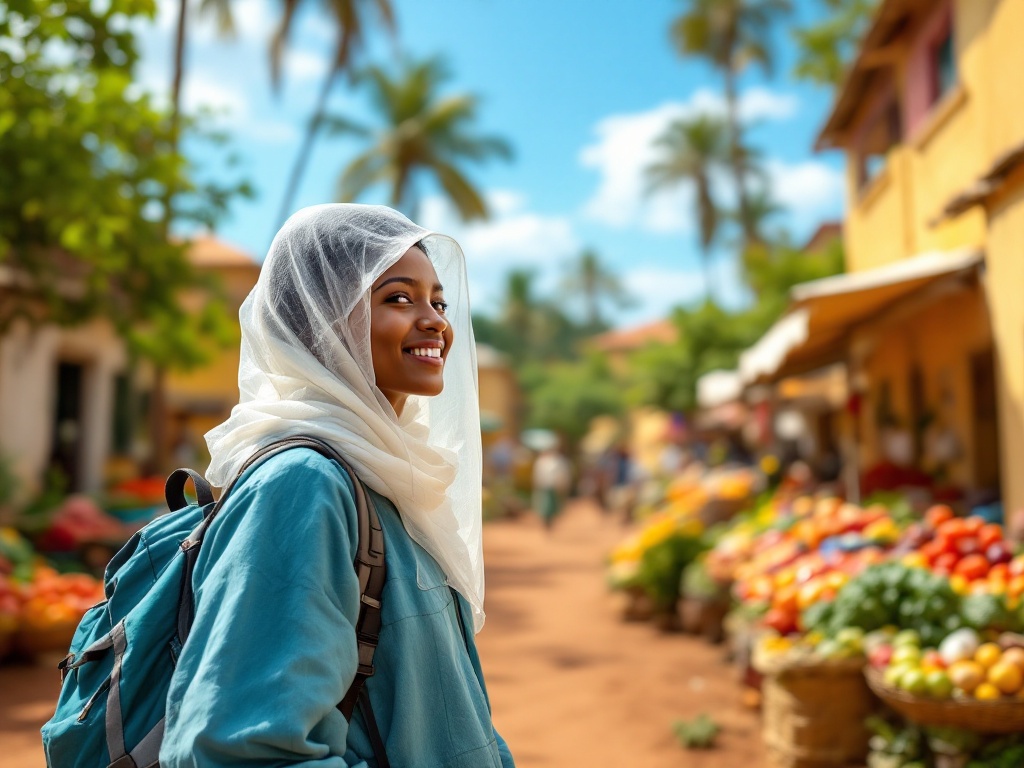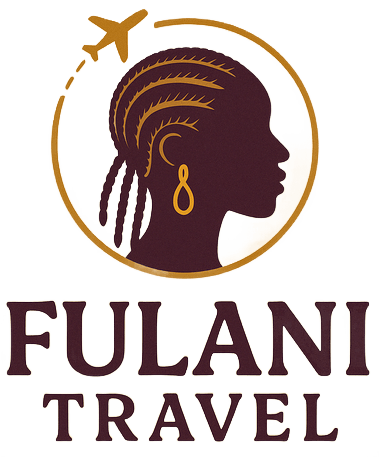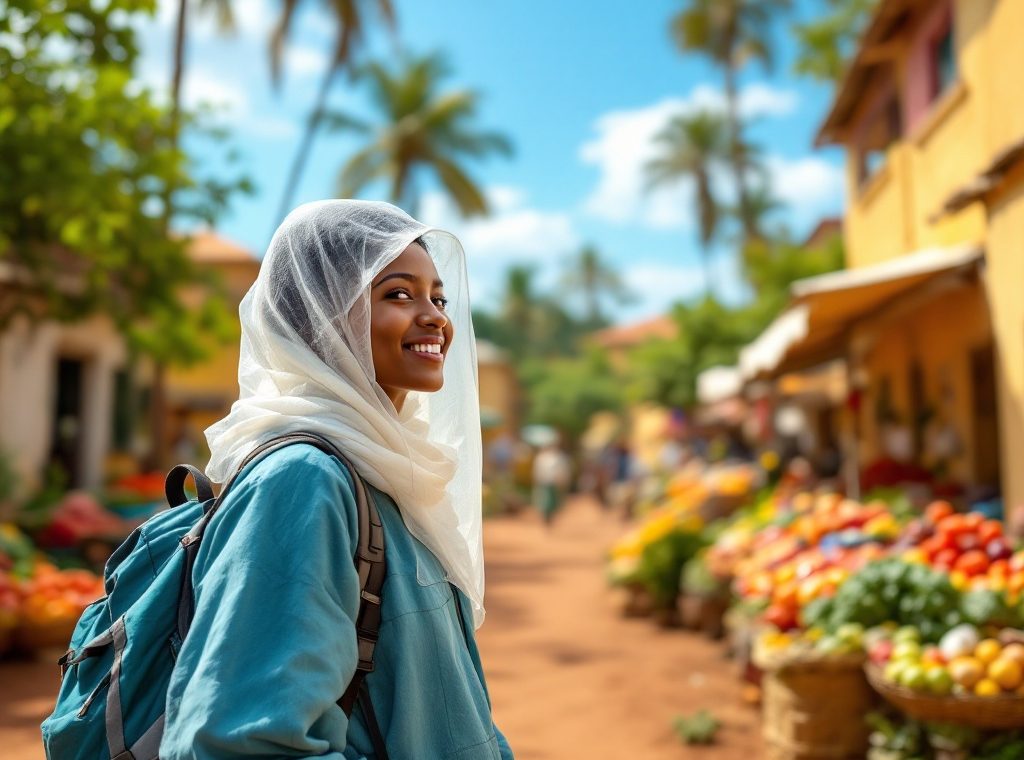Staying Healthy During Travel to Senegal: Vaccinations and Health Precautions
Planning a trip to Senegal? Protecting your health is key to a safe and enjoyable journey. From mosquito-borne illnesses like malaria, dengue, and Zika, to other health risks such as schistosomiasis and cholera, understanding potential hazards is crucial. Learn about essential vaccinations, including yellow fever, and preventative measures for malaria. Discover practical tips for food and water safety, insect protection, and avoiding animal contact. Secure your well-being and peace of mind by exploring our comprehensive guide to health precautions for your Senegal adventure. Read on to prepare for a healthy and memorable trip.
Important information

- Malaria is a serious risk; consult a doctor for appropriate antimalarial medication before, during, and after your trip.
- Yellow fever vaccination is mandatory for most travelers, especially those arriving from a yellow fever-risk country.
- Protect yourself from mosquito bites by using DEET repellent, wearing long sleeves and pants, sleeping under insecticide-treated nets, and staying in screened or air-conditioned rooms.
- Practice food and water safety by consuming bottled or boiled water and avoiding raw or undercooked food.
- Obtain travel health insurance to cover potential medical expenses and emergencies abroad.
Understanding Health Risks in Senegal
Traveling to Senegal requires awareness of several health risks. Consult a travel health specialist to determine the appropriate precautions and medications.
Mosquito-borne Illnesses
- Malaria: Chloroquine-resistant strains are present nationwide, making consultation with a travel health specialist crucial for appropriate antimalarial medication.
- Dengue Fever: This illness can cause severe flu-like symptoms.
- Zika Virus: Pregnant women should be especially cautious due to the risk of Zika virus transmission.
Other Health Risks
- Schistosomiasis: This parasitic infection is contracted through freshwater contact.
- Additional Diseases: Cholera, typhoid, hepatitis A, and HIV/AIDS are present in Senegal. Take necessary precautions to minimize your risk.
- Air Quality: Air quality can deteriorate, particularly during the Harmattan season (January and February), when dust and sand from the Sahara Desert can exacerbate respiratory issues.
Careful planning and health precautions are essential for a safe trip.
Common Diseases and Health Risks
Malaria and dengue fever are serious health risks in Senegal. Cholera, typhoid fever, and hepatitis A also pose threats, so take precautions.
- Malaria
- Dengue fever
- Cholera
- Typhoid fever
- Hepatitis A
HIV/AIDS remains a concern in Senegal. Unvaccinated travelers are vulnerable to measles. Zika virus precautions are also recommended.
- HIV/AIDS
- Measles
- Zika virus
Vaccinations for Travel to Senegal
Planning a trip to Senegal? Ensure your routine vaccinations are up-to-date. This includes diphtheria, tetanus, and polio. If you are arriving from a yellow fever zone, a yellow fever vaccination certificate is mandatory. Hepatitis A and B vaccines are also strongly recommended. For added protection, consider typhoid and meningococcal meningitis vaccinations.Consult your doctor at least eight weeks before your departure. Discuss your itinerary and any additional recommended vaccines with them. Depending on your health, trip duration, and planned activities, your physician might suggest additional vaccinations.
Recommended Vaccinations:
- Rabies,
- Influenza,
- COVID-19,
- Pneumonia.
Other Vaccination Options:
- Chickenpox,
- Shingles,
- MMR.
Your doctor can provide personalized recommendations to ensure a safe and healthy trip.
Recommended Vaccines for Senegal
Planning a trip to Senegal? Ensure your vaccinations are up-to-date. The yellow fever vaccine is mandatory for most travelers. Other essential immunizations include hepatitis A and routine boosters such as MMR and diphtheria-tetanus-polio. For added safety, consider vaccines for typhoid, hepatitis B, and meningococcal meningitis to address regional health risks. Consult your doctor before your trip for personalized recommendations.
Yellow Fever Vaccination Requirements
Travelers over nine months old arriving in Senegal from a yellow fever-risk country must present a valid yellow fever vaccination certificate for entry.
Routine Vaccination Courses and Boosters
Routine vaccinations are crucial for maintaining good health, including boosters for diphtheria, tetanus, polio, and hepatitis A. Depending on your travel plans and individual risk factors, you might also need vaccinations for hepatitis B, meningococcal meningitis, rabies, and typhoid. Most travelers must have a yellow fever vaccination certificate.
Vaccination for High-Risk Travelers
Planning adventurous travels to Senegal? Consider a Hepatitis B vaccination if your trip involves risky activities. Consult your doctor for personalized advice, especially if you have underlying health conditions.
Managing Malaria and Other Vector-Borne Diseases
When traveling to Senegal, be aware of the risk of malaria and consult your doctor about appropriate antimalarial medication. They can evaluate your individual needs and prescribe the correct preventative medicine.
Protecting Yourself from Mosquito Bites
Protecting yourself from mosquito bites is crucial not only for preventing malaria but also other mosquito-borne illnesses like dengue and Zika. Use insect repellent containing DEET.
- Cover up with long sleeves, pants, and socks, especially during dawn and dusk when mosquitoes are most active.
- Sleep under insecticide-treated bed nets.
- Stay in screened or air-conditioned accommodations.
Malaria Prevention
Consult your doctor about antimalarial medication before traveling to Senegal. They can assess your individual risk factors and recommend the most suitable preventative measures, including medication and protective strategies.
Malaria Prevention and Antimalarials
Traveling to Senegal? Be aware of the malaria risk. Consult your doctor about preventive medication before, during, and after your trip. Good options include Atovaquone/Proguanil, Doxycycline, or Mefloquine. If you experience any malaria symptoms upon returning home, seek immediate medical attention.
Avoiding Mosquito Bites
Use insect repellent containing DEET to protect yourself from mosquito bites.
Wear long sleeves and pants for added protection.
Sleep under a mosquito net for crucial security.
Choose accommodations with screens or air conditioning.
If screens or air conditioning aren’t available, limit outdoor activities during dusk and dawn when mosquitoes are most active.
Consider indoor activities during peak mosquito hours.
Eliminate standing water around your home to reduce mosquito breeding grounds.
Health Precautions While Traveling in Senegal
Food and Water Safety
Ensure your food and water are safe by opting for bottled or boiled water, and avoiding tap water, ice cubes, and related beverages. If bottled water isn’t accessible, use a bleach solution to wash produce. Maintain meticulous food hygiene and avoid consuming raw or undercooked food.
Hand Hygiene
Regular handwashing with soap and water is crucial, especially after toilet use and before meals. Alcohol-based sanitizer is a practical alternative.
Insect Protection
Protect yourself from insect-borne illnesses by using insect repellent containing DEET or picaridin on exposed skin. Wearing long sleeves, pants, and socks offers additional protection. In mosquito-prone areas, insecticide-treated bed nets are highly recommended.
Animal Safety
To avoid rabies and other diseases, steer clear of all animals, including dogs, cats, and monkeys. If you are bitten or scratched, wash the wound thoroughly with soap and water and seek immediate medical care.
Food and Water Hygiene Practices
Enjoy your meals hot and fully cooked.
Hydrate with bottled or boiled water, avoiding ice unless it’s from a safe source.
Refrain from raw or undercooked foods, including salads.
Frequent handwashing with soap and water is crucial, especially before eating and after using the restroom.
Street food can be risky, so choose established restaurants for safer dining.
Personal Hygiene Recommendations
Maintain personal hygiene by frequently washing your hands with soap and water, especially after using the restroom and before eating. If soap and water are not available, use a hand sanitizer containing at least 60% alcohol.
Preventing Insect-Borne Diseases
Shield yourself from mosquito bites with an effective insect repellent containing DEET.
Cover exposed skin and wear protective clothing like long sleeves and pants, particularly during dawn and dusk when mosquitoes are most active.
Sleep under an insecticide-treated mosquito net for added protection.
Indoors, seek out screened or air-conditioned areas.
Avoiding Rabies and Animal Contact
Protect yourself from rabies by avoiding contact with animals, especially dogs, cats, monkeys, and bats.
Travel Health Insurance and Emergency Preparedness
Planning a trip to Senegal? Don’t forget travel health insurance. It’s crucial for covering unforeseen medical expenses, from unexpected illnesses and injuries to emergency medical evacuations. This ensures you receive appropriate care without facing exorbitant medical bills, offering valuable peace of mind. Healthcare costs abroad can be substantial, but insurance helps manage these expenses. Moreover, it protects your trip investment by covering cancellations, lost luggage, and even travel delays. Safeguard yourself and your finances with this smart travel precaution.
Importance of Adequate Travel Health Insurance
Planning a trip to Senegal? Don’t forget travel health insurance. It’s crucial for covering unexpected medical costs, like treatment, hospitalization, and emergency medical evacuations, which can be very expensive abroad. Besides financial security, a good policy provides practical support, coordinating medical care and handling complex logistics, ensuring your peace of mind throughout your travels.














